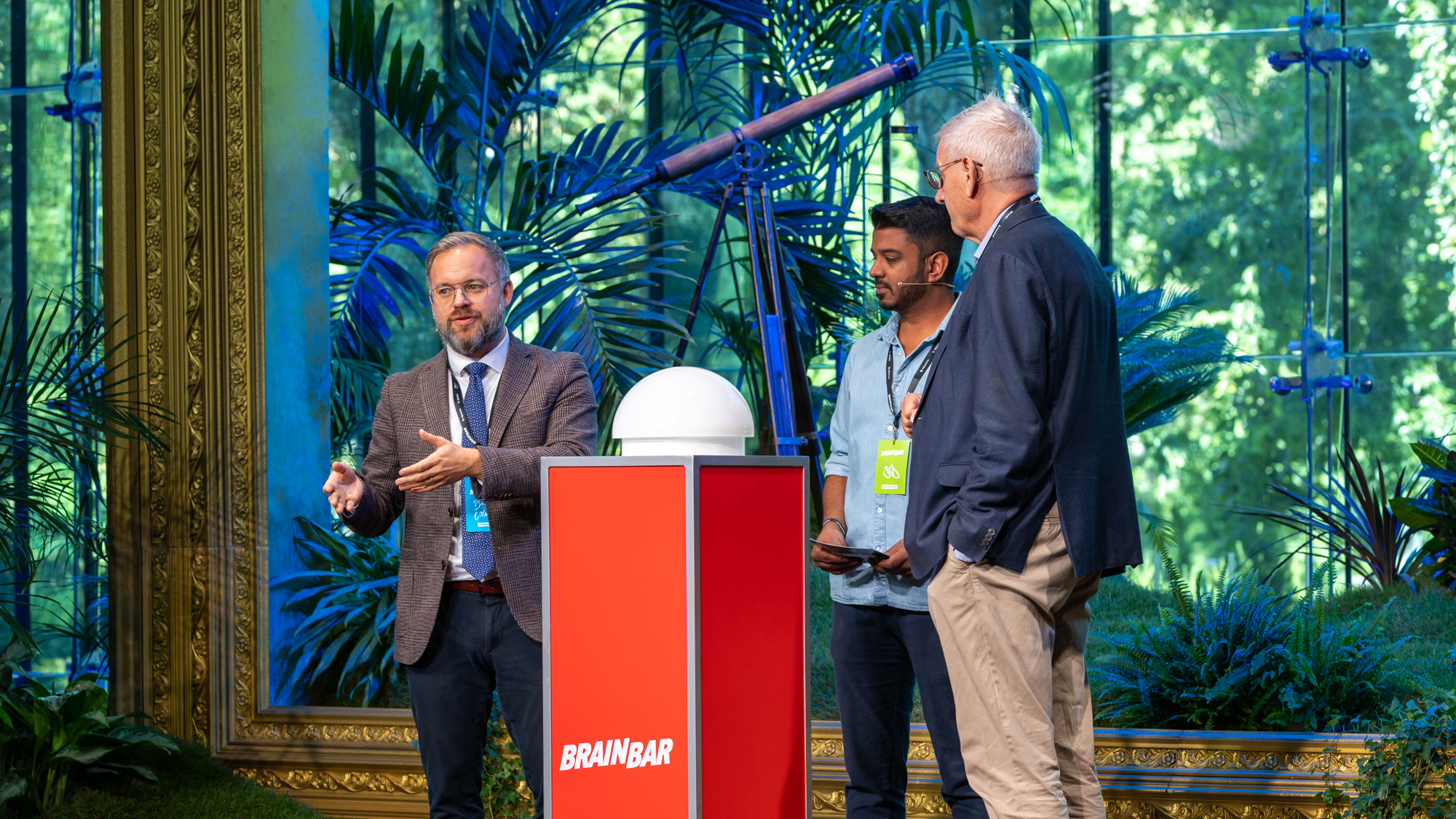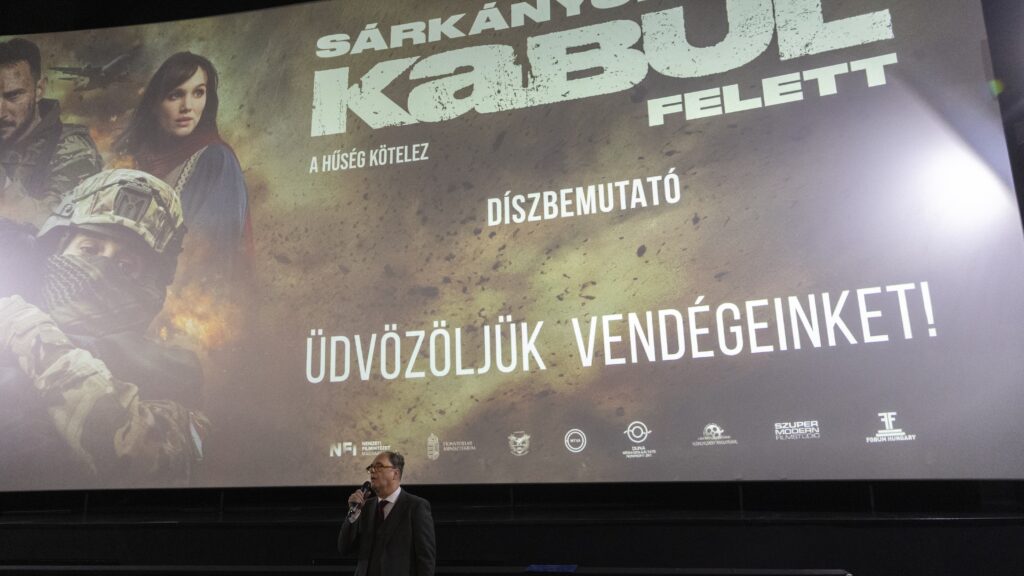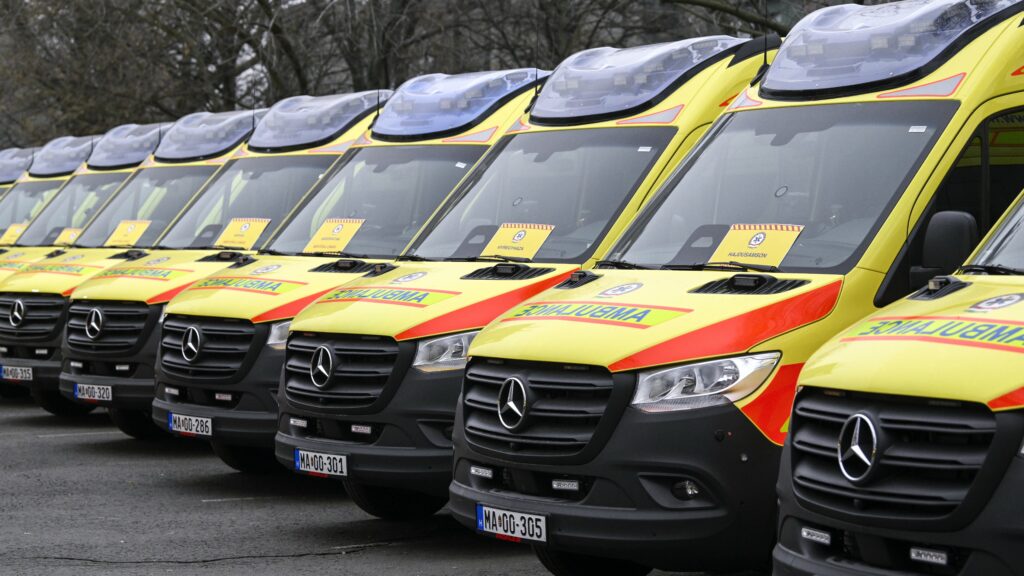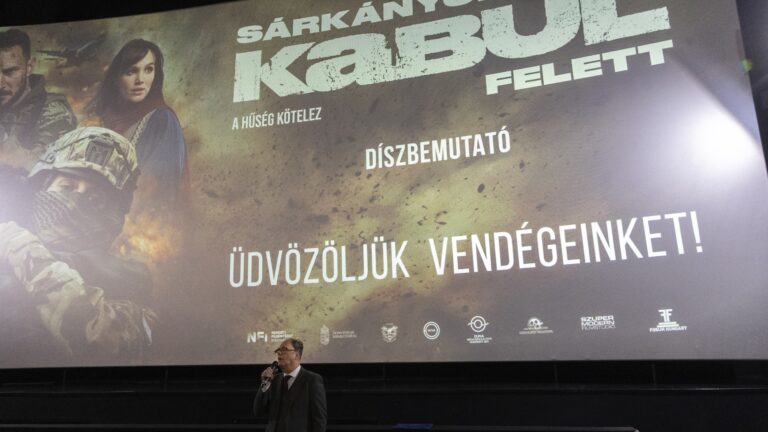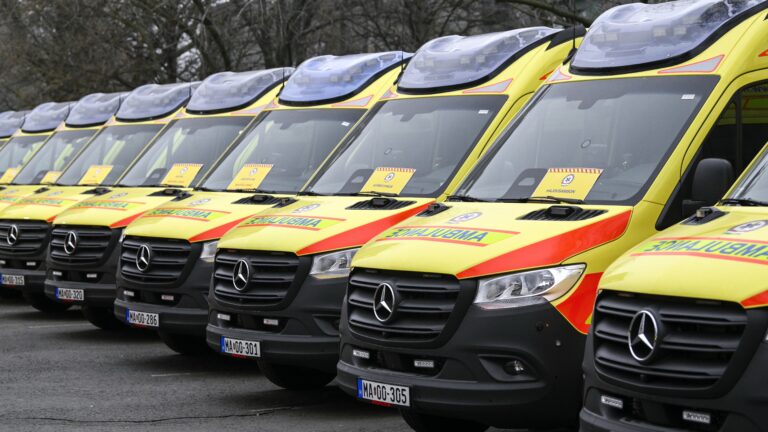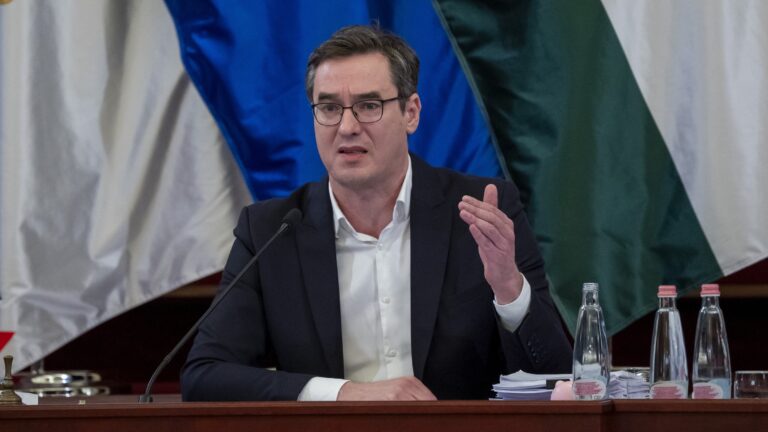At this year’s Brain Bar festival in Budapest, Hungarian Prime Minister Viktor Orbán’s political director Balázs Orbán and former Swedish Prime Minister Carl Bildt faced off in a spirited debate on the future of the European Union, offering sharply contrasting visions for how the bloc should navigate mounting crises.
The moderator opened by asking—first turning to the crowd—whether Europe is on the right path. The audience, packed with students, responded almost unanimously with applause, signalling that they believed the EU is losing global influence. Opening the debate, Bildt replied cautiously, noting that the Union had been created in a very different global context. ‘When both Hungary and Sweden joined, we had a multilateral framework, a liberal global order, and a reliable transatlantic alliance,’ he said. ‘Today, Russia is invading neighbours, and Europe faces competitiveness challenges. We need to go beyond crisis management and become more strategic.’
Balázs Orbán agreed with the diagnosis but sharply rejected the prescriptions. ‘Europe’s crisis management has made things worse,’ he argued. ‘On migration, on the green transition, on the war—Brussels centralizes power and fails. The European political structure itself has become part of the problem.’
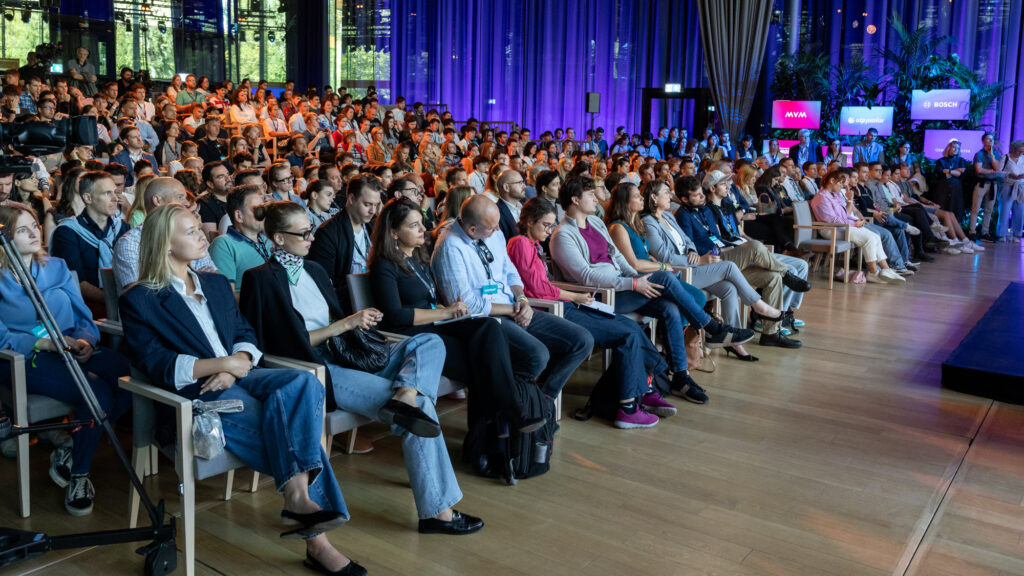
Bildt countered that Europe’s struggles must be understood as a process. ‘We do have a migration problem, a demographic problem, a war problem, and a competitiveness problem,’ he said. ‘But small countries like Hungary and Sweden cannot handle them alone. We need common solutions. It’s work in progress.’
Orbán rejected this line, insisting that Brussels seeks to impose uniform solutions on unwilling member states. ‘On migration, some countries welcomed hundreds of thousands of arrivals, others like us closed borders. The disagreement is clear. The question is: how do we work together without forcing one another?’ he asked. ‘The EU’s institutional setup is being used to force countries into paths they don’t want.’
The 2015 migration crisis became a flashpoint. Bildt recalled that Hungary had bussed asylum seekers toward Austria and Germany, suggesting it undermined solidarity. Orbán shot back that Merkel herself had told Viktor Orbán to let migrants in. ‘He said: “I will defend my borders. If you want migrants, take them, but it’s your decision.” And now we’re criticized for protecting our borders,’ Orbán stated. ‘European solidarity does not exist in the current debate.’
The discussion then turned to the long-term trajectory of the EU. Would the Union fall apart by 2050? Bildt insisted it would not: ‘Brexit was a mistake, and most Europeans recognize that. In a more demanding world, we can only succeed together.’
Orbán also said he hoped not, but warned that Europe was losing competitiveness and becoming ‘the most isolated power centre in the world’. He accused Brussels of cutting itself off from cheap Russian energy, confronting China on trade, and quarrelling with Washington. ‘With current leaders, it will be very hard to change course. That’s why Hungarians say we need new leadership.’
Bildt disputed the claim that Europe cut energy ties unilaterally. ‘It was Russia that cut gas deliveries, trying to force us into submission,’ he argued. He stressed that Europe remains an industrial powerhouse, though lagging in information technology due to fragmented capital markets and underfunded universities.
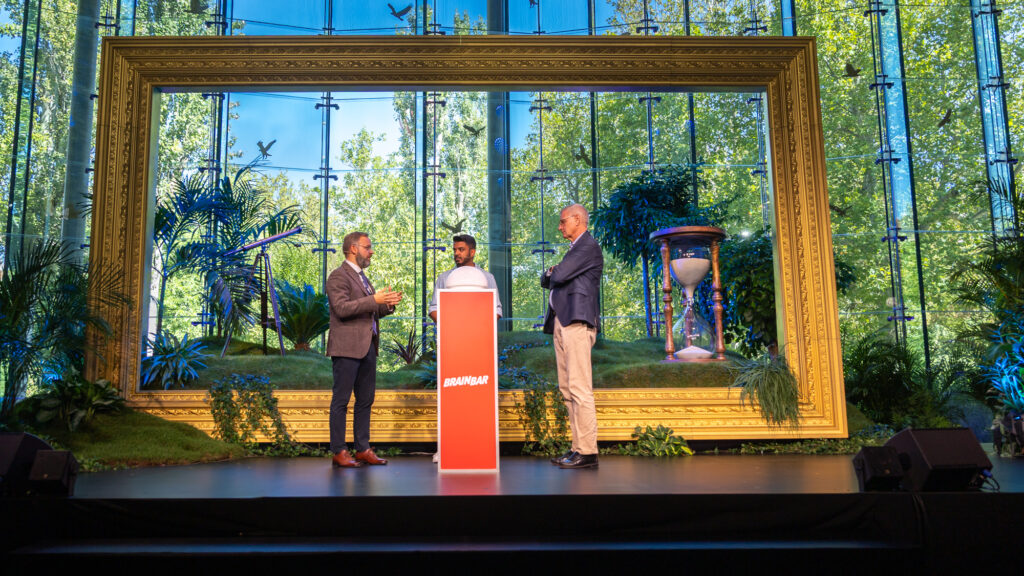
Orbán responded that without cheap energy, Europe’s traditional industries cannot survive. He pointed out that some states continue to buy Russian energy indirectly via India. ‘If we want industry and jobs for young people, we need cheap energy. Otherwise we have no future,’ he said. He also lamented Europe’s failure to lead in artificial intelligence, accusing Brussels of prioritizing bureaucratic debates over competitiveness.
Bildt, however, highlighted ongoing EU trade initiatives, from the revived Mercosur deal to negotiations with India, South Korea, and Japan. ‘We need to be more offensive globally,’ he said, adding that integrated capital markets are essential to keep European start-ups from fleeing to the United States.
The two also painted very different pictures of the future awaiting young Europeans. Bildt’s vision included more opportunities to study and work abroad, greater ambition in health and global governance, and robust support for Ukraine. ‘The defence of Ukraine today is the defence of Europe tomorrow,’ he warned.
Orbán rejected this approach. ‘It would be a miserable future for young Europeans to be told their role is to finance and fight a war outside the EU,’ he said. Instead, he emphasized the need for leadership that promises ‘higher salaries, jobs, opportunities to raise kids, and above all safety.’
On domestic security, Bildt insisted that Europe remains among the safest regions in the world, with crime rates far lower than in the United States. Orbán disagreed: ‘Public safety is broken in many big EU cities, and everyone knows it is linked to migration. We Hungarians don’t want to follow that path.’
‘It would be a miserable future for young Europeans to be told their role is to finance and fight a war outside the EU’
The war in Ukraine was another dividing line. Bildt described Russia’s invasion as a ‘miserable failure’, with Kyiv resolute in its defence, and called for continued European support. Orbán, however, stressed the immense costs, warning of escalation toward NATO–Russia confrontation and urging a ceasefire and negotiations ‘as soon as possible’.
Despite their differences, both acknowledged that diplomacy will be essential to ending the conflict. ‘Both sides think they can gain by fighting, which makes external efforts vital,’ Orbán said, adding that both Moscow and Kyiv are lying about their desire of peace. Bildt agreed but insisted the only way to achieve peace is to convince Putin he cannot win.
As the debate drew to a close, the moderator returned to the opening question of Europe’s global standing. The room, filled with students, appeared to hold firm to its initial view—that the EU is indeed losing influence, much as they had signalled at the very start.
Related articles:

